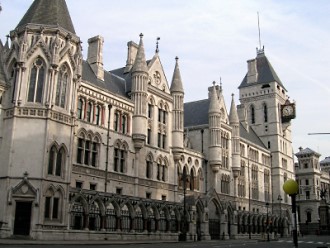Lord Justice Aikens warns all those advising clients have a duty to examine any further potential legacy claim with the closest scrutiny
The Court of Appeal has today dismissed six combined so-called "legacy" cases, and ruled that the position with regard to legacy cases on the particular points raised in the judgment "is now to be taken as laid to rest."
 Image credit: WikipediaEIN members can read the judgment, SH (Iran) & Anor v Secretary of State for the Home Department [2014] EWCA Civ 1469, here.
Image credit: WikipediaEIN members can read the judgment, SH (Iran) & Anor v Secretary of State for the Home Department [2014] EWCA Civ 1469, here.
In the judgment, the principal issue arising in the applications was summed up as whether there is an obligation, in the form of a commitment, on the part of the Secretary of State to "conclude" cases falling within the legacy programme relating to asylum cases either by the grant of leave to remain or by effecting the removal of the applicant from the United Kingdom.
Giving the lead judgment and dismissing the appeals, Lord Justice Davis stated at para 65: "The position with regard to legacy cases on these particular points is now to be taken as laid to rest. There have been many decisions in the last two years on the salient points, all of which are in substantial accord. There is no separate legacy "policy". There is no basis for relying on delay as, in itself, a ground for obtaining leave to remain. There is in the ordinary case no relevant legitimate expectation, other than that the case will be considered on applicable law and policy at the time the decision is made. There is no basis for saying that there is a commitment on the part of the Secretary of State to "conclude" a case either by effecting actual removal or by granting leave to remain."
Lord Justice Aikens emphasised that "[j]udges will firmly dismiss any further claims in legacy cases that attempt to repeat arguments (however disguised) that the courts have already been comprehensively rejected," and warned "[a]ll those advising clients have a duty to examine any further potential legacy claim with the closest scrutiny."
Following the judgment, immigration barrister Paul Turner, who appeared for one of the appellants, commented on Twitter that he was considering an appeal to the Supreme Court.